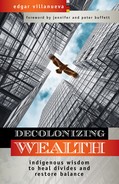Foreword
Fortunate, privileged, blessed—we had always known we were all of these things, but 2006 took things to another level.
That was the year that Warren Buffett, Peter’s father, bestowed on us a gift that would eventually total billions of dollars, to fund charitable work of our choosing. Despite Peter’s famous last name, this sum of money was far beyond anything either of us had ever fathomed, much less controlled.
It was a responsibility with a weight we had never known. It meant we were suddenly expected to have all the answers. It meant we were invited into conversations with heads of state, investment managers, corporate leaders, entrepreneurs, and other big philanthropists, the global ruling elite, an overwhelmingly white and male crowd. These were the people who held forth on innovation, solutions, and progress. These were the people entrusted with leadership, whom investors think of as strategic, from whom the world expects great things.
The more we heard, the more we realized that these rooms full of wealthy and powerful white men could not possess the wisdom we sought. Far too often, they were searching for answers with their right hand to problems that they had created or contributed to with their left.
Those who had benefited most from the system of wealth consolidation were seen as the experts and the saviors of those who had been exploited and harmed by it. But why? In our own experience, assuming control of a vast amount of money had nothing to do with having all the answers. If there was one thing we were clear on, it was that we didn’t have answers; all we could do was listen and practice humility. We devoted ourselves instead to an earnest search for fresh ideas that show unusual promise for significant impact.
Humility is something we could stand to see a lot more of among those of us who control the wealth of the world. Humility is not the same thing as modesty or false modesty. Humility is characterized by an accurate sense of self—assessing not just our weaknesses but also our privileges and strengths, being honest with ourselves about both. The root of the word is related to the soil, like the word “humus.” Humility literally means being close to the ground.
This is where we find expertise and solutions, too: close to the ground, close to experience. The communities who have direct experience of an issue are by far the best experts on it.
Two other things that are etymologically close to the ground are the radical, which comes from “root” and the Indigenous, which means to be native to a place or born of a place.
Edgar Villanueva brings together all three of these things—an Indigenous, Native American voice that is simultaneously humble and radical. When we first met Edgar, we knew his leadership and writing would be a key to unlocking the stranglehold that the broken capitalist, patriarchal, and colonial systems have on our deeply divided country. Edgar calls us to dig deeper for different ways of being, rooted in love of humanity and the earth.
Again and again he asks us here to imagine: What if?
“Even just asking the question opens us to radically different possible realities and can lead to healing, to a greater sense of dignity and purpose,” he writes.
What if we could use wealth to heal rather than cause further harm? What if funders, philanthropists, and entrepreneurs could help restore the earth? What if money was spent trying out concepts that shatter current structures and systems that have turned much of the world into one vast market?
Getting from “here” to “there” is rarely obvious or a straight line. But radical imagination—daring to ask What if?—is always part of the process.
Everything Edgar is saying feels fundamentally different—and fundamentally true. It is clear that his voice, and that of many other Native and marginalized leaders, illuminates a path forward, in the face of extreme inequality, violence, and greed.
Voices like Edgar’s remind us that progress and unity can be found by trusting in the deep wisdom of local communities, rather than chasing expertise from outside. It demonstrates that true healing, and lasting justice, won’t be discovered in the technological advancements of the future, but recovered in the time-tested wisdom found close to the ground. It offers the radical hope that money might be used as medicine, after all, to heal the trauma and wounds we all bear.
